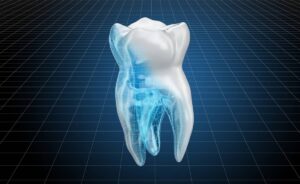Single tooth dental implants have become a popular option for replacing missing teeth, providing patients with a long-lasting and natural-looking restoration. However, the success of a dental implant depends on several crucial factors that must be carefully considered before and after the procedure. In this text, we will focus on three essential factors that can affect the success of a single tooth implant: bone density and quality in the implant site, proper placement and alignment of the implant, and patient compliance with post-operative care and maintenance. By understanding these factors, patients can make informed decisions about their dental health and work with their dentist to ensure the long-term success of their dental implant.
Bone density and quality in the single tooth dental implant site
Bone density and quality in the implant site are one of the most critical factors that can affect the success of a single tooth implant. The success of a dental implant depends on the ability of the implant to integrate with the surrounding bone and form a strong and stable foundation for the replacement tooth.
If the bone density and quality in the implant site are inadequate, it can lead to implant failure. Factors that can affect bone density and quality include age, oral health, tooth loss, trauma, and other medical conditions. In some cases, patients may require bone grafting or other procedures to improve bone density and quality before implant placement.
Bone grafting involves taking bone from another part of the body or using synthetic or donated bone material to augment the existing bone in the implant site. The bone graft serves as a scaffold for new bone growth and helps create a more solid foundation for the implant. The healing process for bone grafting can take several months, and the patient may need to wear a temporary restoration during this time.
In some cases, patients may not be candidates for bone grafting due to medical or other reasons. In such cases, the dentist may recommend alternative implant placement strategies, such as angled or tilted implants, that can still provide a stable and secure foundation for the replacement tooth.
Proper placement and alignment of the implant
Proper placement and alignment of the implant is another critical factor that can affect the success of a single tooth implant. The implant must be placed in the optimal position and angle to ensure good function and aesthetics of the final restoration.
During the planning phase of the implant procedure, the dentist will evaluate several factors to determine the optimal placement and alignment of the implant. These factors include the patient’s occlusion (the way their teeth come together), the position of the adjacent teeth, the amount of available bone, and the location of important anatomical structures, such as nerves and sinuses.
Once the optimal placement and alignment of the implant are determined, the dentist will use surgical guides and other tools to ensure the precise placement of the implant. This may involve making a small incision in the gums to expose the bone and using drills and other instruments to prepare the bone for the implant.
The implant must be placed at the correct depth to ensure sufficient stability and integration with the bone. The depth of the implant is critical to ensure that the implant can withstand the forces of chewing and other normal dental function. If the implant is placed too shallow, it may not integrate properly with the bone, while if it is placed too deep, it may cause damage to important anatomical structures or lead to implant failure.
In addition to proper placement, the alignment of the implant is also critical for the success of the final restoration. The implant must be aligned with the adjacent teeth to ensure proper function and aesthetics. This may involve angling or tilting the implant to compensate for the position of the adjacent teeth or using custom abutments or other components to ensure proper alignment.
Patient compliance with post-operative care and maintenance
Patient compliance with post-operative care and maintenance is another critical factor that can affect the success of a single tooth implant. The implant procedure is a surgical procedure that requires proper care and maintenance to ensure the success of the implant.
After the implant placement, the patient must follow specific post-operative care instructions to promote healing and prevent complications. These instructions may include:
-
Oral hygiene: The patient must maintain good oral hygiene by brushing and flossing the teeth regularly. The implant site must be kept clean, and any food debris or plaque should be removed to prevent infection.
-
Diet: The patient may need to follow a soft diet for a few days after implant placement to prevent damage to the implant. The patient should also avoid hard or crunchy foods that can put pressure on the implant site and compromise the healing process.
-
Medications: The patient may need to take antibiotics or pain medications as prescribed by the dentist to prevent infection and manage pain.
-
Follow-up appointments: The patient must attend regular follow-up appointments with the dentist to monitor the healing process and ensure that the implant is integrating properly. The dentist may take X-rays or other imaging tests to evaluate the implant’s progress.
Failure to comply with these instructions can increase the risk of implant failure due to infection, inflammation, or other complications. In some cases, poor oral hygiene or trauma to the implant site can lead to implant failure.


